Chee Hong Tat: Future is bright for free trade in Asia-Pacific
June 18 , 2019
The rise of Asian economies over the past 40 years has increased living standards and prospects of millions, if not billions, of individuals across the region and drawn attention from the world over. Singapore, as an economic stronghold since the beginning of the wave of Asian economic growth, and China, hailed to overtake the U.S. as the world’s largest economy and an Asian economic powerhouse, will both play crucial roles in shaping the future of free trade in the region. Yet, increasing uncertainty in global trade and the U.S.-China trade war are casting long shadows on the future prospects
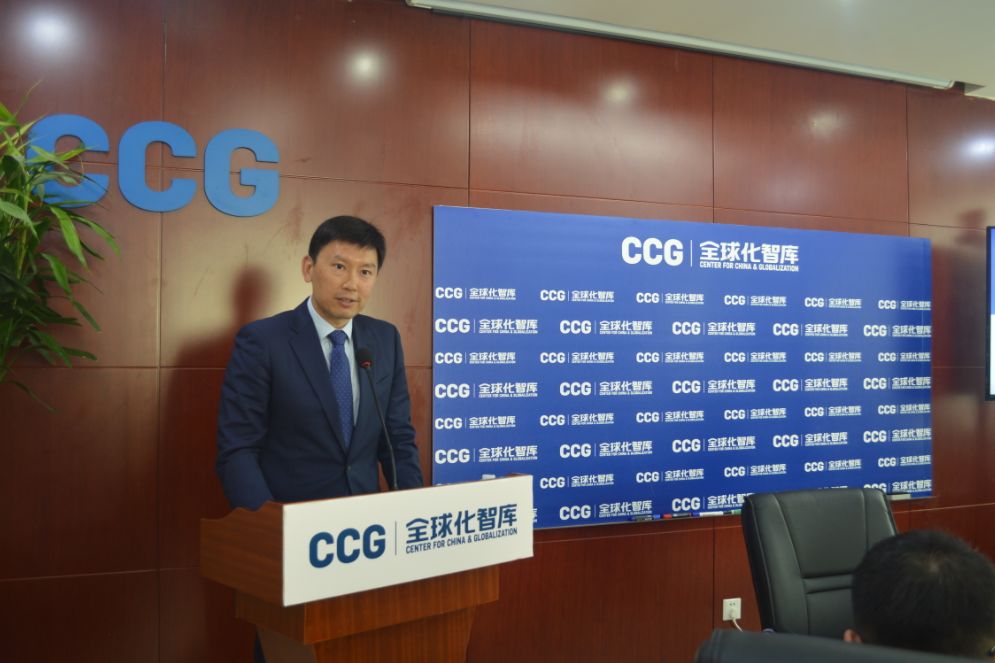
The rise of Asian economies over the past 40 years has increased living standards and prospects of millions, if not billions, of individuals across the region and drawn attention from the world over. Singapore, as an economic stronghold since the beginning of the wave of Asian economic growth, and China, hailed to overtake the U.S. as the world’s largest economy and an Asian economic powerhouse, will both play crucial roles in shaping the future of free trade in the region. Yet, increasing uncertainty in global trade and the U.S.-China trade war are casting long shadows on the future prospects of free trade in Asia-Pacific.
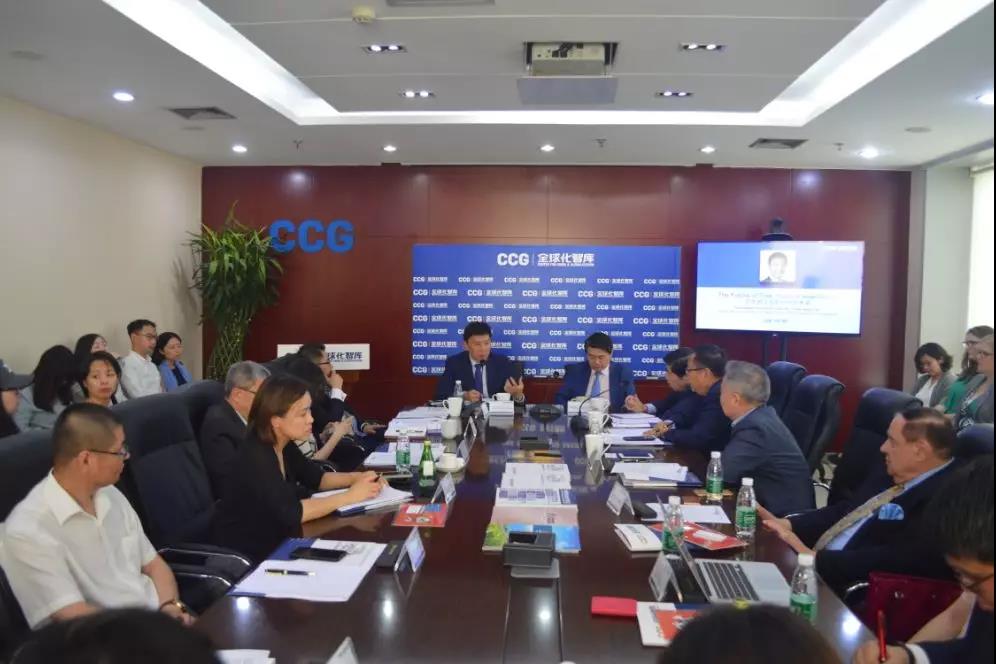
On June 18, the Center for China and Globalization (CCG) was honored to host Mr. Chee Hong Tat, Singaporean Senior Minister of State for Trade, Industry and Education for a roundtable discussion. This event took focus on potential future cooperation between China and Singapore on trade issues, as well as on how to resolve the U.S.-China trade war. In addition, regional cooperation and common opportunities and challenges in Asia, such as the Belt and Road Initiative (BRI), Regional Comprehensive Economic Partnership (RECP), the multilateral trading system and WTO reform, and other important issues were also discussed.
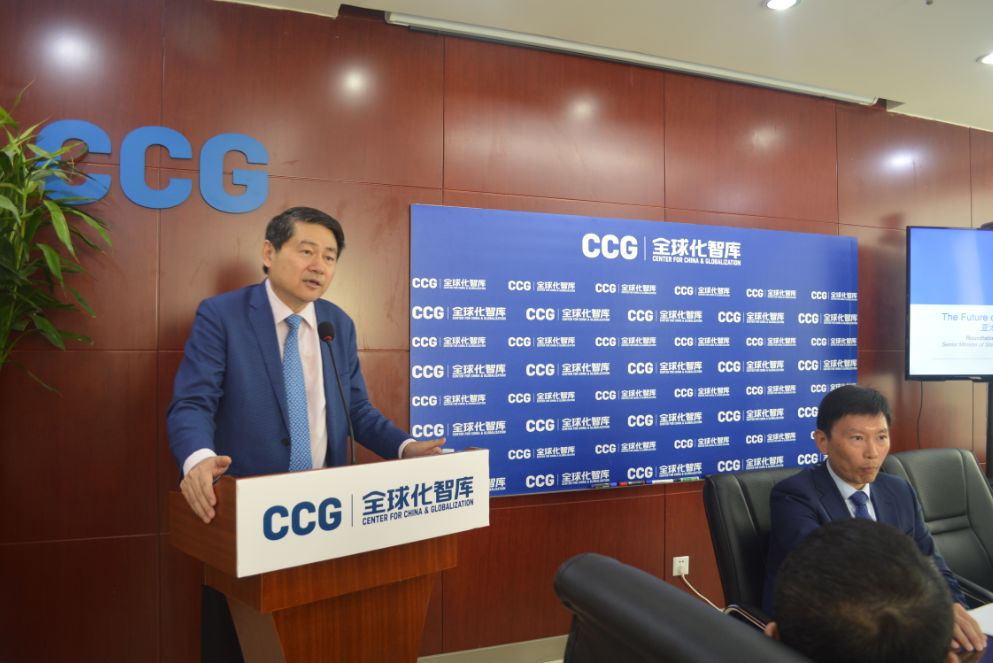
Dr. Wang Huiyao, President of CCG, opened the roundtable discussion by introducing Mr. Chee Hong Tat and all participants in attendance. Setting the topic in context, Dr. Wang Huiyao noted that Asia is the fastest growing region in the world, and Singapore as a nation has set a shining example of economic prowess for Asian-Pacific nations. He continued to comment that in the current global economic circumstances, it is necessary to have a diverse range of perspectives from experts of all walks of life to better reach consensus in trade disputes and to reform and support free trade systems. CCG, by offering a platform for discussion between relevant figures on these crucial issues, works to foster greater cooperation and understanding for mutual economic growth in Asia-Pacific.
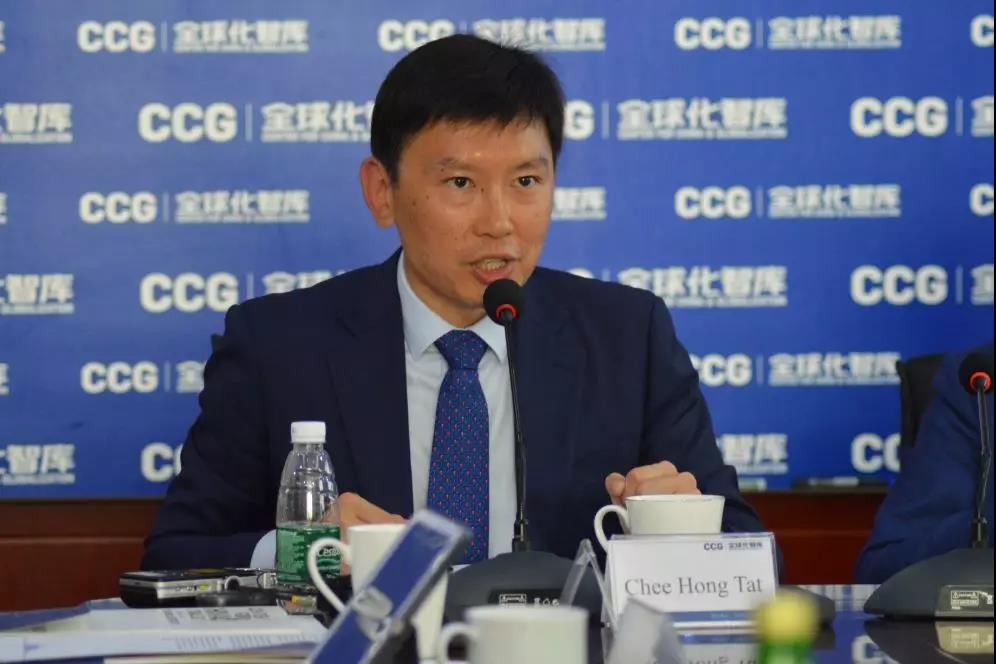
Mr. Chee Hong Tat began his speech by reviewing the 30 years of Sino-Singaporean diplomatic relations, especially the intensification of the relationship in recent decades with regular exchanges held between both nations’ leaders. On the trade front, Minister Chee stated the Sino-Singaporean strategic project recently agreed in Chongqing is representative of the economic, financial and e-commerce cooperation between the two nations, as well as being included within the Belt and Road Initiative (BRI).
The renewal and upgrading of the China-Singapore FTA last year reinforces both nations’ commitment to further opening-up and the basic principles of the multilateral free trade system, Minister Chee stated. He went on to highly praise the progress China has made in the 40 years of its Reform and Opening-Up.
Regarding current uncertainties in both the regional and global economy, Minister Chee said that he felt a lack of strategic mutual trust between China and the U.S. was and is a key factor in the escalation of trade tensions. Whilst the current impasse will not be solved easily in the short term, with patience and enhanced mutual understanding and trust building, tensions can be scaled back and consensus can be sought.
In this regard, Minister Chee suggested China seek to further enhance its protection for overseas investment and intellectual property rights, as well as strengthening links between Chinese and foreign firms on BRI projects.
Looking forward, Minister Chee said there are many reasons for optimism. BRI and the Asian Infrastructure Investment Bank (AIIB) offer great opportunities for economic growth and development in the region. By 2030, ASEAN will become the fourth largest economy in the world, to expand this growth consultation on RECP should be continued in order to spread the shared benefits of regional economic successes.
Following Minister Chee’s keynote speech, a roundtable discussion was held with Amb. Stanley Loh, Ambassador of Singapore to the People’s Republic of China, several high-level diplomats from the Singaporean Embassy, Harvey Dzodin, CCG Nonresident Senior Fellow, China Daily Columnist and former Vice President of ABC Television, Huo Jianguo, CCG Senior Fellow and former President of the Chinese Academy of International Trade and Economic Cooperation, Ministry of Commerce, Xu Hongcai, CCG Nonresident Senior Fellow and deputy Director of Economic Policy Commission, China Association of Policy Science, Sun Jie, CCG Senior Fellow, former Director of Fund Management at China Securities Regulatory Commission and former Chairman of Asset Management Association of China, Li Siqi, Assistant Professor, Institute for WTO Studies at the University of International Business and Economics (UIBE), Miao Lu, CCG Vice President and Secretary-General, Dr. Ann Tang, CCG deputy Secretary-General, as well as representatives from EU, Germany, U.K., Australian and Finish embassies in China and CCG experts and researchers.
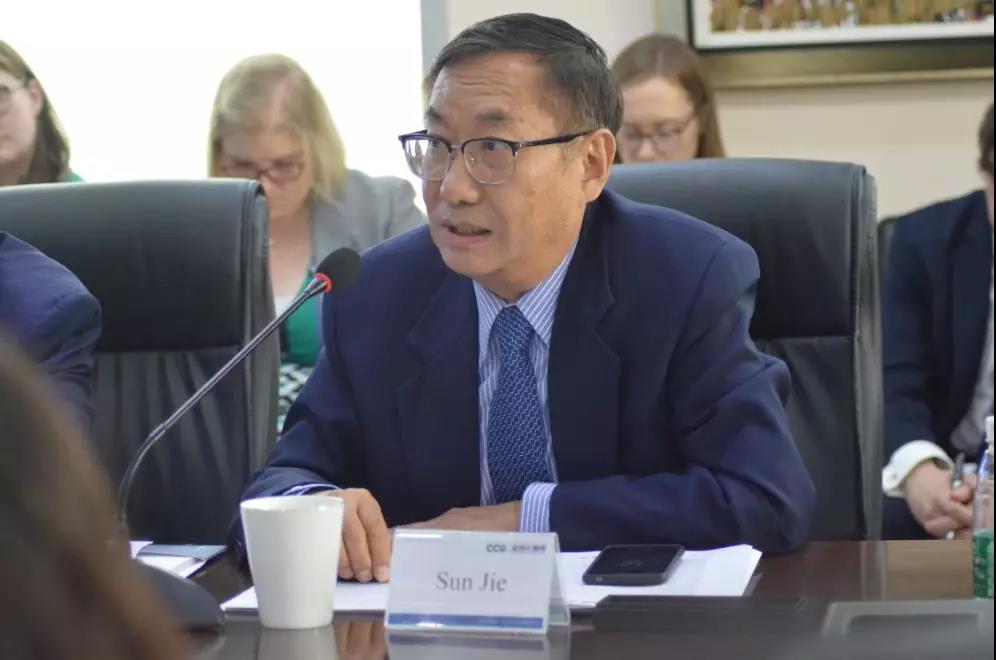
Sun Jie, CCG Senior Fellow, former Director of Fund Management at China Securities Regulatory Commission and former Chairman of Asset Management Association of China, agreed with Minister Chee that Singapore is a global leader in trade and he hoped that China and Singapore strengthen learning and cooperation, maintain mutual trust and deepen understanding. On the trade war, Mr. Sun pointed out that if the Trump government imposed another $300 billion of punitive tariffs on China, it would damage the U.S. economy, raise consumer prices, and may trigger inflation, and even affect Trump’s re-election chances. He said that the Trump Administration’s move has damaged the interests of both China and the United States, and that economic tensions are harmful and not self-serving for either party.
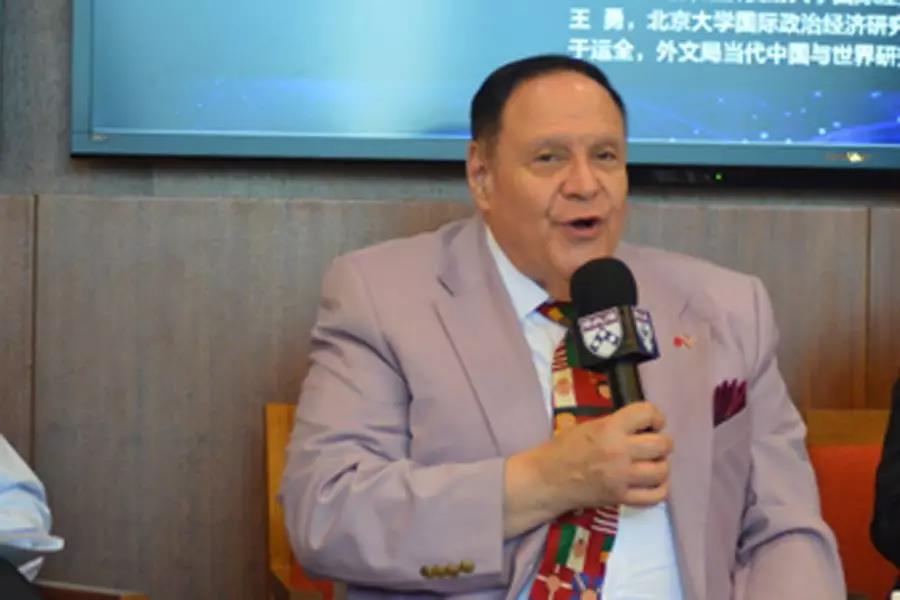
During the discussion, Harvey Dzodin, CCG Nonresident Senior Fellow, China Daily Columnist and former Vice President of ABC Television, stated he also believes that the prospects for economic and trade cooperation in the Asia-Pacific region are extremely positive. On the future development of multilateral cooperation in WTO, Mr. Dzodin said that Singapore’s successful experience is worth learning from and proposed Minister Chee encourage more member countries to support WTO reform.

CCG Senior Fellow and former President of the Chinese Academy of International Trade and Economic Cooperation at the Ministry of Commerce, Huo Jianguo, commented that the region offers immense opportunities, however, at present some view China as an obstacle, therefore China must continue its reform and opening-up in order to best take advantage of the opportunities and play a bigger role in Asia-Pacific. Mr. Huo argued that the U.S. shouldn’t seek to dominate the region and that whilst the ASEAN “10+1” and “10+3” models are relatively easy to achieve, “10+6” including the U.S. is too complex and difficult to be realized.

Xu Hongcai, CCG Nonresident Senior Fellow and deputy Director of Economic Policy Commission, China Association of Policy Science, commented that the Sino-U.S. trade war is impacting industrial and supply chains in the region and that Singapore, as a regional economic leader, has an important role to play in current circumstances. Mr. Xu put forward suggestions for greater cooperation between China and Singapore. In the financial sector, especially asset management and the internationalization of the RMB, China could seek to closer cooperation with the global and regional financial hub. For joint investment, Mr. Xu put forward the recently established Hainan Free Trade Port as an ideal opportunity to explore cooperation. Mr. Xu also suggested areas for experience-sharing such as the Guangdong-Hong Kong-Macau Greater Bay Area learning from Singapore in the development of its talent training and industrial innovation systems, as well as China looking to the Singaporean experience in the management of state assets and corporate governance.
In the Q&A session following the roundtable discussion, journalists and experts discussed the obstacles in the RCEP negotiation process, how to promote WTO reform, ways to attract investment from small and medium-sized economies, the impact of the Sino-US trade war on China and the challenges faced by young leaders.
On obstacles in the RCEP negotiation process, Minister Chee responded that countries around the world need to learn from each other to find solutions to global problems. Although the RECP negotiation process has been long and countries’ attention is biased towards certain aspects, there is a need to maintain confidence that RCEP can bring new breakthroughs in economic cooperation in the Asia-Pacific region. RECP would not only promote regional trade, but also act as an important signal of trade openness, investment and multilateral cooperation. He said that China and Singapore should strengthen cooperation to enhance and accelerate the negotiation process by incorporating new partners.
Regarding issues related to WTO reform, Minister Chee said like everything else, WTO needs to keep pace with the times and update itself. In order to persuade more countries to support WTO reform, countries must first explain the practical benefits of WTO reform to attract more support, and strive to reach national consensus to support its reform. Only in this way can WTO reform be successful.
Keyword














